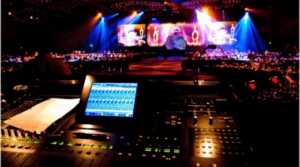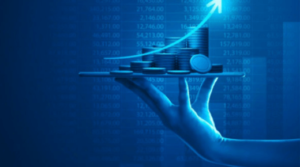Robotic Revolution: AI-Powered Machines Changing Industries

The rapid advancement of artificial intelligence (AI) and robotics is ushering in a new era of automation and innovation across industries. From manufacturing to healthcare, AI-powered machines are transforming the way tasks are performed, increasing efficiency, and reshaping the workforce. This “robotic revolution” holds the potential to drive significant economic growth and enhance the quality of human life.
One of the key drivers of the robotic revolution is the increasing sophistication of AI algorithms. Machine learning and deep learning techniques enable robots to learn from data, adapt to different situations, and improve their performance over time. This allows robots to perform complex tasks that were previously considered exclusive to humans.
In manufacturing, robots equipped with AI and sensors are revolutionizing production lines. These robots can perform repetitive tasks with high precision, speed, and consistency. This not only reduces errors but also frees up human workers to focus on more creative and strategic aspects of production.
In the healthcare sector, robots are playing a crucial role in surgery, diagnostics, and patient care. Surgical robots can assist surgeons in performing intricate procedures with greater accuracy and minimal invasiveness. AI-powered diagnostic tools analyze medical images and patient data to detect diseases and conditions at earlier stages, improving patient outcomes.
AI-driven robots are also making inroads into the transportation and logistics industry. Self-driving vehicles are becoming more sophisticated, with AI algorithms enabling them to navigate complex environments and adapt to changing road conditions. Additionally, drones equipped with AI are being used for tasks such as package delivery and monitoring of large areas.
While the robotic revolution offers numerous benefits, it also raises important questions about the impact on the workforce. As automation becomes more prevalent, certain jobs may be at risk of displacement. However, this also opens up opportunities for reskilling and upskilling the workforce to take on roles that require human creativity, critical thinking, and emotional intelligence—skills that AI cannot replicate.
Ethical considerations are another aspect of the robotic revolution. As robots become more integrated into daily life, questions about accountability, bias in AI algorithms, and the potential for job loss must be addressed. It’s crucial to establish guidelines and regulations that ensure the responsible and ethical development and deployment of AI-powered machines.
In conclusion, the robotic revolution driven by AI-powered machines is reshaping industries and pushing the boundaries of what’s possible. From manufacturing to healthcare to transportation, robots are enhancing efficiency, precision, and innovation. As this revolution unfolds, it’s essential to navigate its challenges and opportunities with a focus on human well-being, responsible development, and the synergy between human and machine capabilities.



